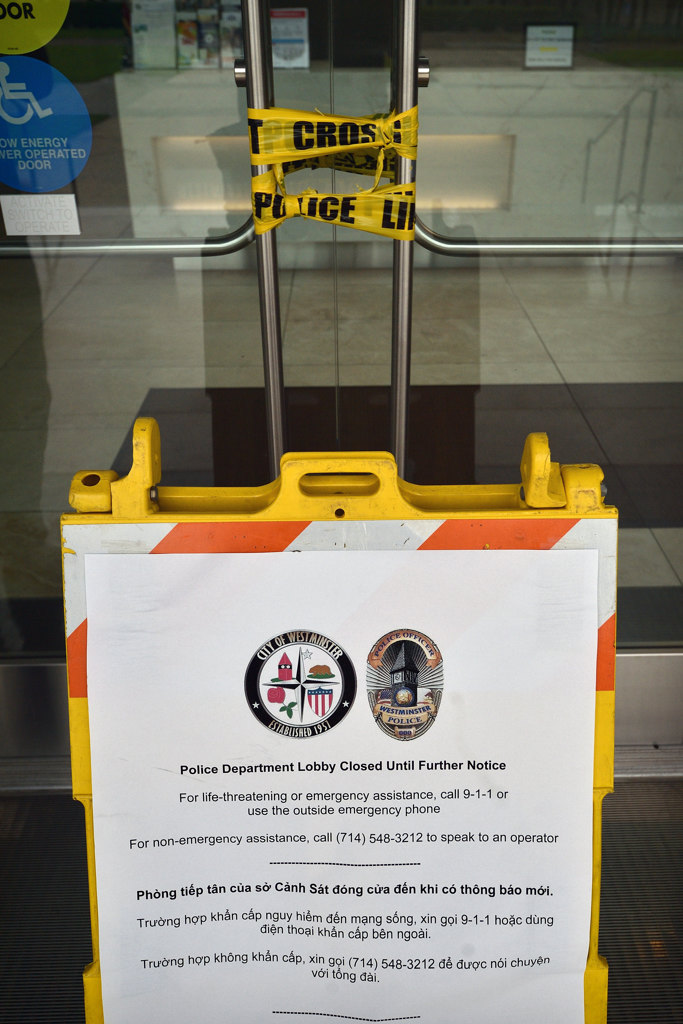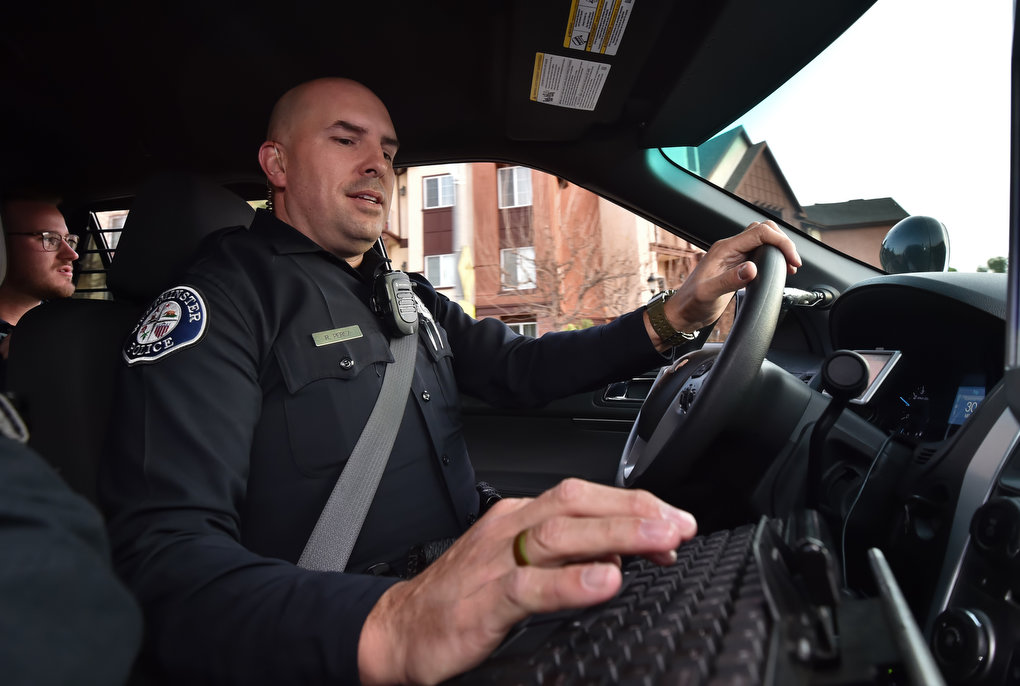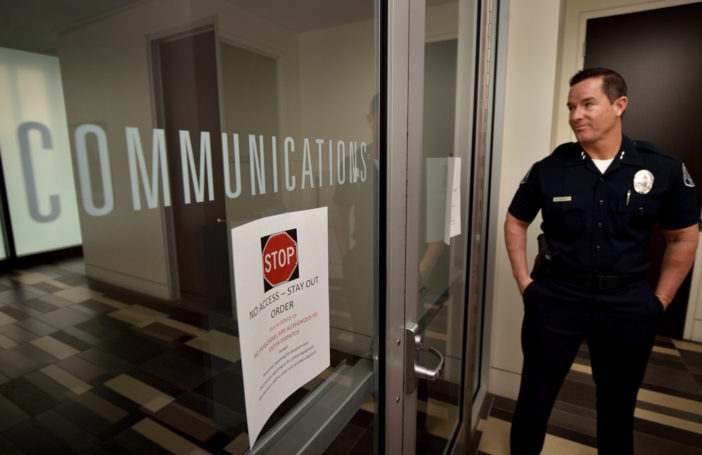When the World Health Organization declared COVID-19 a global pandemic on March 11, the Westminster Police Department moved quickly to institute safety measures to protect its employees and the community at large.
The agency closed the police station lobby to the public. Patrol officers were scheduled into four platoon shifts so that they worked with the same partners on every shift in order to avoid cross-contamination. Dispatchers also worked in platoon shifts and were sectioned off from the rest of the building. Phone calls were encouraged over in-person communication. Many employees worked from home when possible.
Patrol officers were only going out to priority-one calls, including crimes-in-progress and injury traffic accidents. Cold reports, which involve crimes that are not in progress or are reported some time after the crime, were taken by phone by officers.
Now, nearly three months later, signs of normalcy have resumed at the station.
“We instituted it pretty quickly in an effort to keep our officers safe, the public safe,” said Commander Kevin MacCormick, who oversees patrol officers. “And now that things have calmed down, we’re going to go back to business as usual.”
In mid-May, patrol officers began responding to all calls in person. However, if a community member reporting a crime prefers that an officer call rather than come out, the officer can still take the report by phone.
Equipped with masks, gloves, goggles and gowns, patrol officers are able to utilize personal protective equipment (PPE) depending on the situation at their discretion, MacCormick said. If it’s a house call, officers either put on masks to enter the home or ask residents to come out to speak to them at a safe distance.
“We’re still doing that part of it because obviously there’s still that threat out there and we don’t want our officers to get sick,” he said. “All of our officers have gloves. We don’t touch or touch anybody’s stuff unless we have gloves on.”

A sign at the entrance of the Westminster Police Department informed people that the lobby was “Closed Until Further Notice”, giving them a number to call a police operator for non-emergencies and to call 9-1-1 for emergencies, as shown in this April 2020 photo. City restrictions are now lifting and officers and other employees are easing back into business as usual.
File photo by Steven Georges/Behind the Badge
But the increased precautions aren’t far from what patrol officers already do considering what they can be exposed to on a daily basis — including things like contaminated hypodermic needles.
“Some of it we’re already doing,” he said. “I think maybe it’s just boosted our safety precautions. We’re used to having to operate like that.”
The increased precautions have paid off. In the first week of the new protocols, there was a brief scare of possible infection when officers responded to a death in a home.
“(The deceased) later tested positive for COVID,” MacCormick said. “All of our officers were tested and they all came back negative.”
All the employees at the agency have remained healthy.
“We’ve never been through something like this before,” MacCormick said. “Now, I think we’ve learned from it. Next month, if we’re having to go through it again, we’d institute it pretty quickly.”
But for the time being, as the county and state have begun to ease restrictions, a sense of normalcy is returning to the agency. Officers are returning to a regular schedule beginning June 6 and the lobby will return to its regular hours of 8 a.m. to 5 p.m. Monday through Friday but with limited access (people will be able to walk only to the records window).
MacCormick said residents have been very understanding about the changes in procedure.
“The community understood, they were receptive,” he said.
Westminster Police Department’s Homeless Liaison Officer Roland Perez, who was temporarily moved into regular patrol during the initial agency scheduling changes, resumed his work with Westminster’s homeless population in early May. He said most people being home and businesses closed allowed the homeless population to trespass in areas they wouldn’t normally go.
“We were getting a lot of complaints,” he said. “We had to be a little more proactive than reactive.”

Westminster Police Officer Roland Perez checks in with other officers before heading to his next location in this 2018 photo. Behind him is Blake Wigglesworth of City Net.
File photo by Steven Georges/Behind the Badge
Since then, he’s resumed his regular work of homeless outreach in the city. Part of that involves having a representative from City Net, a homeless outreach organization, ride along with him to assist members of the homeless community by connecting them to shelters and other services available to them. These visits have resumed as well.
Because of the pandemic, one of the long-term shelters temporarily stopped taking new residents and with restaurants closed, there were fewer food sources available to the homeless population.
Part of Perez’s more recent work with the homeless has involved connecting them to other services, including the county’s emergency shelters.
“We’re trying to still assist the homeless population regarding COVID-19,” Perez said. “The biggest struggle is getting them to finally trust you in order to ask for help when they’re ready.”
Whatever changes they have faced, officers still have a job to do, MacCormick said.
“You sign up for this job, that’s just something you take on,” he said. “Knowing that anything can happen at any time.”
 Behind the Badge
Behind the Badge



